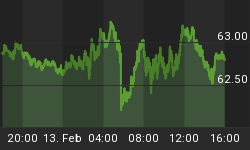Late last week, Venezuela’s President Nicolas Maduro ordered a hike in the value of the country’s state-sponsored cryptocurrency ‘el petro.’
In an announcement on Thursday, President Nicolas Maduro ordered that the price of one petro be increased from 3,600 sovereign bolivars to 9,000. This move came with a 150 percent wage hike, the sixth such hike of the year as the Venezuelan economy continues its disastrous negative spiral.
“The arrival of Christmas is very exciting, so this corrective measure comes as a gift for large working families,” Maduro said.
There is growing suspicion, however, that the world’s first state-sponsored cryptocurrency still does not exist.
Venezuelan economist Leonardo Buniak explained, “When the president decrees that a petro is worth 9,000 Bs.s, what he is saying is that the petro is not a cryptocurrency but a debt title that is predetermined, [which] cannot be mined. It is impossible to think that it is a cryptocurrency when its value is not given by the interaction between supply and demand.”
El Petro: The Crypto that Never Was
The petro, which was officially rebooted at the beginning of last month, struggled at the starting line once again, with underwhelming interest, a broken wallet, and very interaction with the blockchain.
And now, a month later, nothing has really changed.
The wallet is still broken, meaning the only way to actually ‘purchase’ the crypto is to go to the headquarters of Sunacrip, the operator of the blockchain, to purchase a physical certificate that will supposedly entitle owners ‘real’ petro when the wallet issues are sorted.
Related: Bitmain Faces $5 Million Lawsuit
Even if users were able to send and receive petro, however, there are currently no significant exchanges offering, or planning to offer, the cryptocurrency.
But petro’s troubles aren’t limited to its lack of wallet availability.
There’s still no public code for the platform, meaning confirmation of its existence is practically impossible. Additionally, there are no charts reflecting confirmations, hashrate or network activity, making it difficult to verify the health of the platform.
Crypto Transactions on the Rise
Despite petro’s troubles cryptocurrency transactions in Venezuela are on the rise.
According to data from Coin Dance, bitcoin transactions hit record levels, with over 2.35 billion sovereign bolivars traded in the week ending on December 1st.
Trading volume in Venezuela has seen significant growth in 2018, with sharp boosts coming in relation to economic announcements from the government.
Regardless of the fall in value, Bitcoin, in particular has become a hedge against further inflation of the country’s national currency.
Other cryptocurrencies, as well, are becoming more widespread, especially in Caracas, Venezuela’s capital city.
CEO of Dash Core Group Ryan Taylor noted a wave of adoption in the country, explaining, "We are seeing tens of thousands of wallet downloads from the country each month," adding, "Earlier this year, Venezuela became our No. 2 market, even ahead of China and Russia, which are, of course, huge into cryptocurrency right now."
By Michael Kern via Crypto Insider
More Top Reads From Safehaven.com:

















